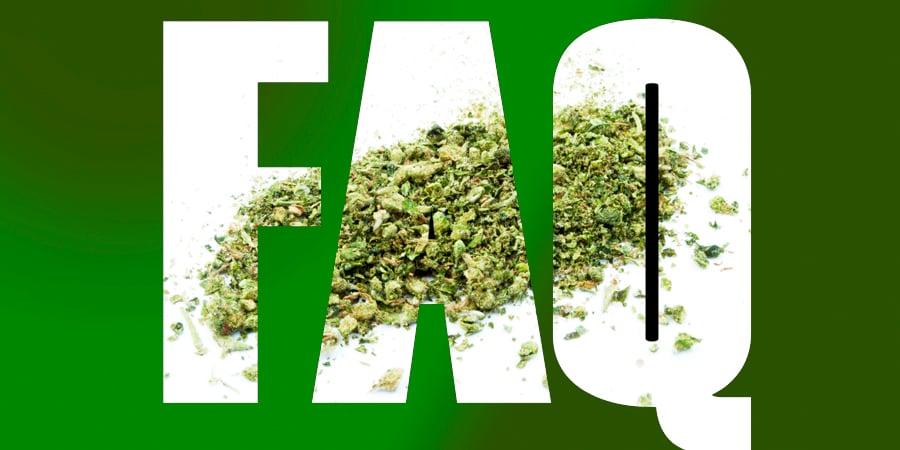Brands and products

Frequently Asked Cannabis Questions
You’re familiar with the concept of an FAQ – Frequently Asked Questions – right? Many organizations use FAQs on their websites and in promotional media to address commonly asked questions.
Well, here at Cannawayz.com, we get a lot of the same cannabis questions over and over. So, we put together a quick Cannabis FAQ…
How Does Cannabis “Get You High?”
It all comes down to brain chemistry. Your body contains what’s known as the endocannabinoid system. This system controls the release of neurotransmitters, and these transmitters are how your brain tells your body what to do.
When the cannabinoid in THC bonds with the neurons in your brain, your endocannabinoid system, for lack of a better term, goes a little haywire. It releases a flood of neurotransmitters that “turns up the volume” on your sensory perception. And voila, you’re high!
Why is Cannabis Illegal?
Let’s clarify a couple of things here. Cannabis is illegal according to federal law. It’s classified as a Schedule I drug, along with heroin, meth, LSD, and a host of other “street drugs,” all of which, according to the federal government, have “no redeeming therapeutic value.”
But while federal law prohibits the possession, use, and sale of cannabis, a majority of US states have legalized either medical or recreational cannabis.
This is kind of confusing and places the cannabis industry in a legal gray area.
But as to why cannabis is illegal, it’s a primarily moral issue. One hundred years ago, cannabis was completely legal. But then, amid the 1920s Jazz Age, when cannabis use became more prevalent, the same high-mind, religious zealots that brought you the Prohibition-era alcohol ban pushed the government to clamp down on cannabis.
And this cannabis prohibition is still in place more than a century later.
Why Does it Take Longer to Feel the Effects of Cannabis Edibles?
Cannabis is immediately absorbed into your bloodstream through the capillary veins in your lungs when you smoke cannabis flower or vape cannabis concentrate.
But when you eat cannabis edibles, you need to digest the cannabis before it's absorbed into your bloodstream through your digestive tract.
So, however long it takes you to digest a cannabis edible is how long it takes to feel its effects.
Is Cannabis Addictive?
To answer this, we need to make a distinction between physical addiction and psychological addiction.
Physical addiction is when a drug “physically” alters your body chemistry in such a way that you can no longer function properly without that drug.
Heroin, cocaine, and even alcohol can physically change your body chemistry if you consume too much over a sustained period of time. And withdraw from these drugs, which is what happens when you stop taking them, is excruciatingly harrowing.
Alcohol withdraw can result in delirium tremors, also known as the DTs, which cause seizures, and if severe enough, can lead to death.
Cannabis, on the other hand, doesn’t not alter your body chemistry in a way that creates physical dependence. You can, however, become psychologically addicted to cannabis.
But here again, we need to clarify the terms of psychological addiction. You can become psychologically addicted to any habitual activity. People are addicted to exercise. People are addicted to porn. Some have even suggested the alcoholics in Alcoholics Anonymous (AA) have traded their alcohol addiction for an AA addiction.
Your brain releases dopamine when you engage in any activity that gives you pleasure, satisfaction, or a sense of security. So, if you enjoy using cannabis, it can be as psychologically addictive as any other activity.
What’s The Difference Between THC and CBD?
THC and CBD are both chemical compounds found in cannabis. There are differences between cultivation practices, crop adaptabilities, and growing cycles between THC and CBD. But the primary difference separating the two is their respective effects.
THC has psychoactive properties. Meaning it’s an intoxicant that affects your brain and can alter your perception. In other words, THC “gets you high.”
CBD has various therapeutic properties, including pain relief, sleep support, and appetite stimulation. But CBD does not produce any psychoactive effects.

